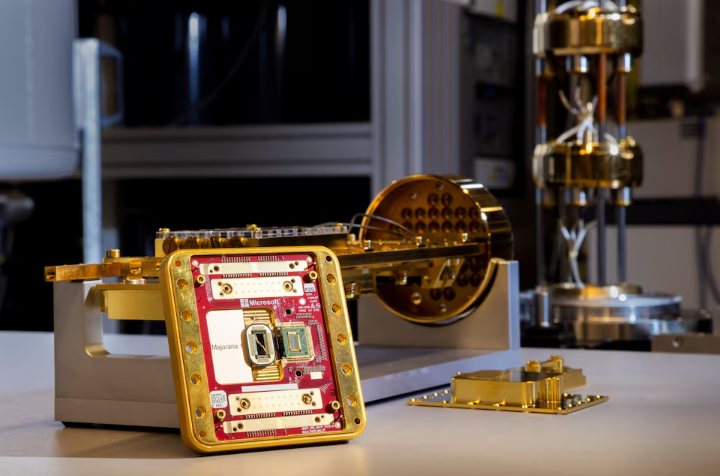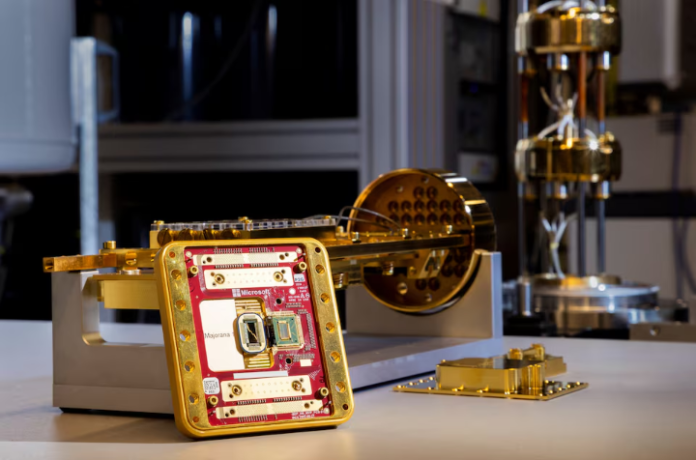On February 20, 2025, quantum computing stocks experienced a notable surge following Microsoft’s announcement of its groundbreaking Majorana 1 chip. This development challenges previous assertions, such as those by NVIDIA’s CEO Jensen Huang, who suggested that practical quantum computing remains two decades away.
The Majorana 1 chip represents a significant leap in quantum technology. Utilizing a novel state of matter known as a topological superconductor, this chip aims to reduce error rates that have historically hindered quantum computing’s reliability. Microsoft’s CEO, Satya Nadella, emphasized that this advancement could enable more stable qubits, the fundamental units of quantum information, thereby accelerating the path to practical applications.
Quantum computing holds the promise of performing complex calculations at speeds unattainable by classical computers, potentially revolutionizing fields such as cryptography, drug discovery, and materials science. The introduction of Majorana 1 has reinvigorated discussions about the timeline for quantum computing’s mainstream adoption. Companies like Alphabet and IBM, alongside Microsoft, are now suggesting that the era of practical quantum computing could arrive sooner than previously anticipated.
The market responded positively to Microsoft’s announcement. Shares of quantum computing firms, including IonQ, Rigetti Computing, and D-Wave Quantum, saw gains ranging from 2.1% to 11.1%. Microsoft’s own stock experienced a modest uptick of 0.5%, while NVIDIA’s shares edged up by 0.3%. This surge indicates renewed investor confidence in the sector, contrasting with the downturn observed earlier in the year following Huang’s cautious projections.
The Majorana 1 chip’s innovation lies in its use of topological superconductivity, a theoretical form of matter that has now been realized. This approach aims to produce stable and scalable qubits by leveraging Majorana fermions, particles that are their own antiparticles. By achieving this stability, Microsoft aspires to scale quantum processors to accommodate up to a million qubits on a single chip, a monumental increase from current capabilities.

Despite these advancements, the path to fully functional, large-scale quantum computers remains challenging. Skeptics point to the technical and engineering hurdles that must be overcome. However, Microsoft’s progress with Majorana 1 suggests that solutions to these challenges may emerge sooner than previously thought. The company’s approach focuses on reducing error rates and enhancing qubit stability, which are critical factors for practical applications.
In contrast to NVIDIA’s more conservative timeline, Microsoft’s developments have sparked optimism within the tech community. The debate over the arrival of practical quantum computing continues, but with Majorana 1, Microsoft has positioned itself at the forefront of this transformative field. As research and development efforts intensify, the prospect of quantum computing solving complex, real-world problems appears increasingly within reach.



